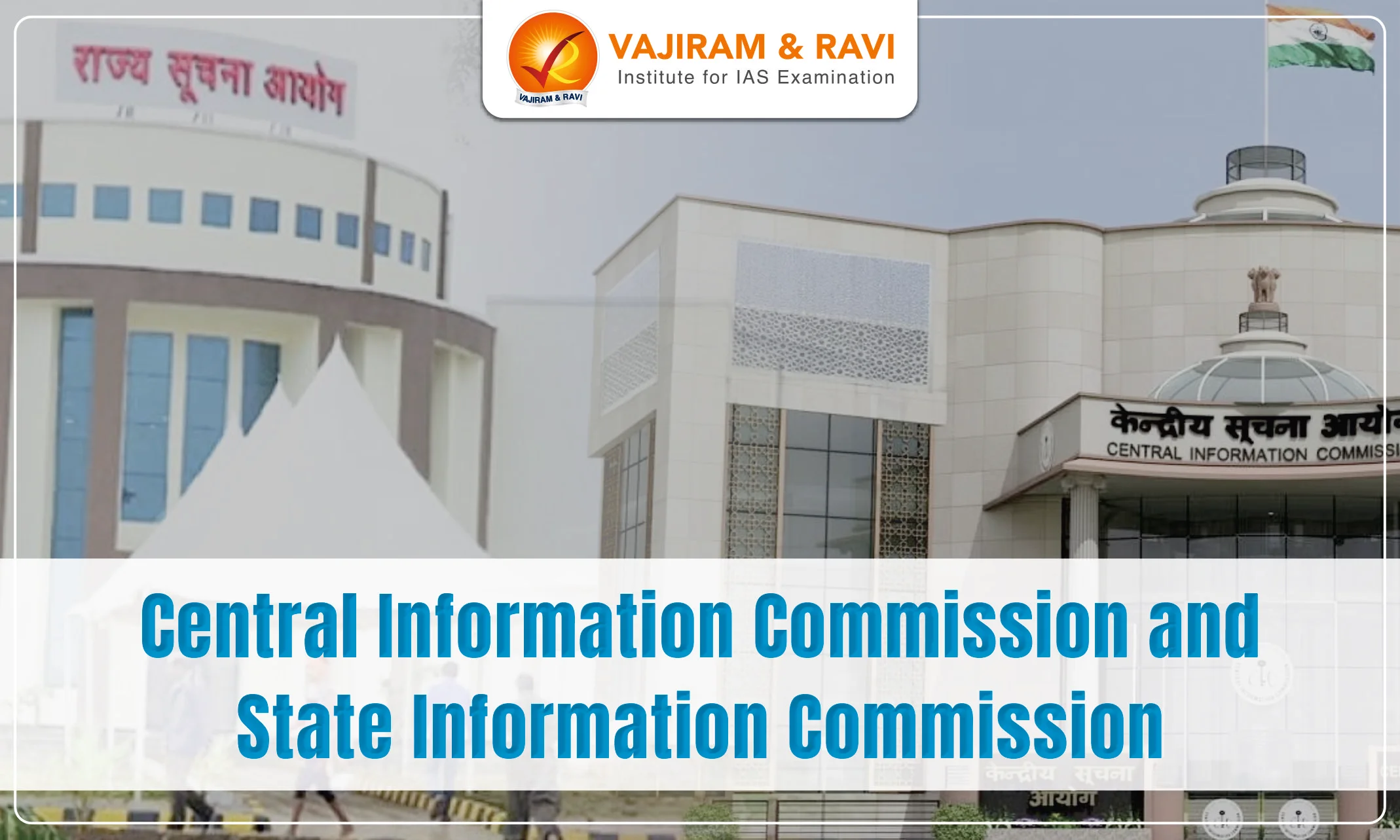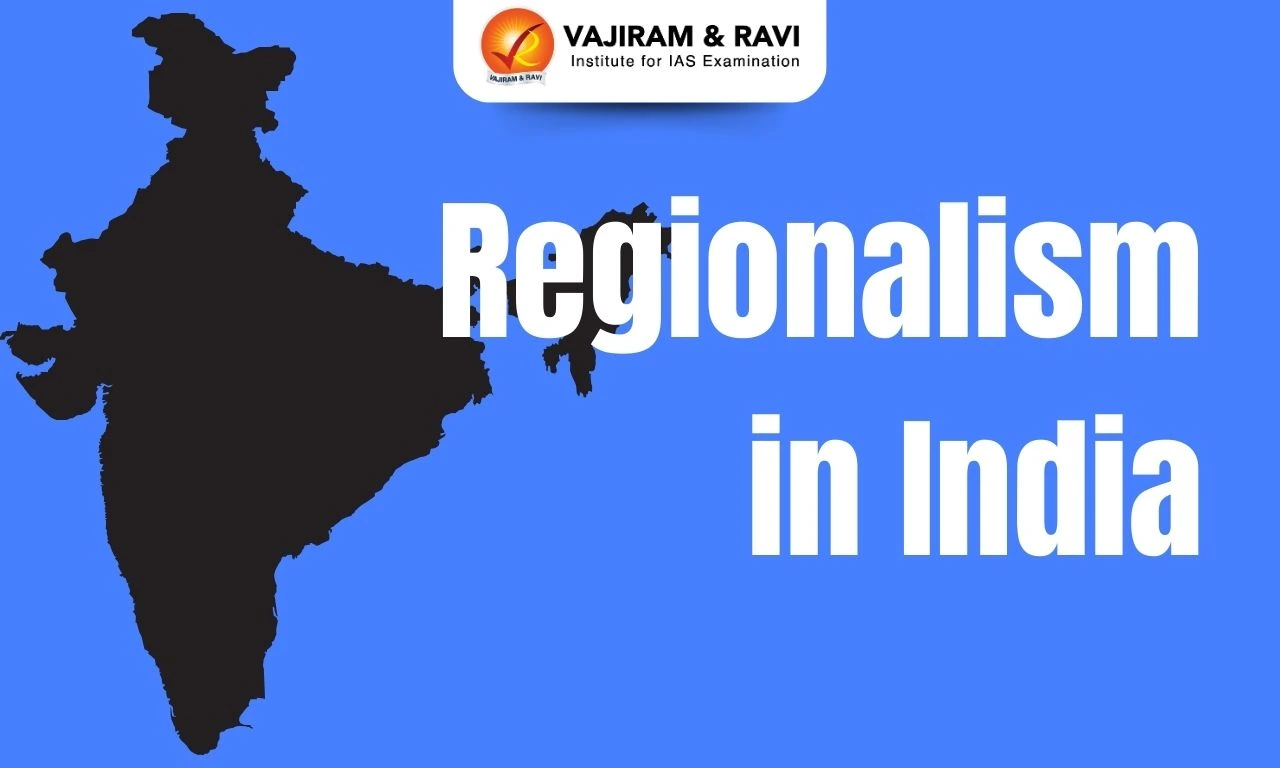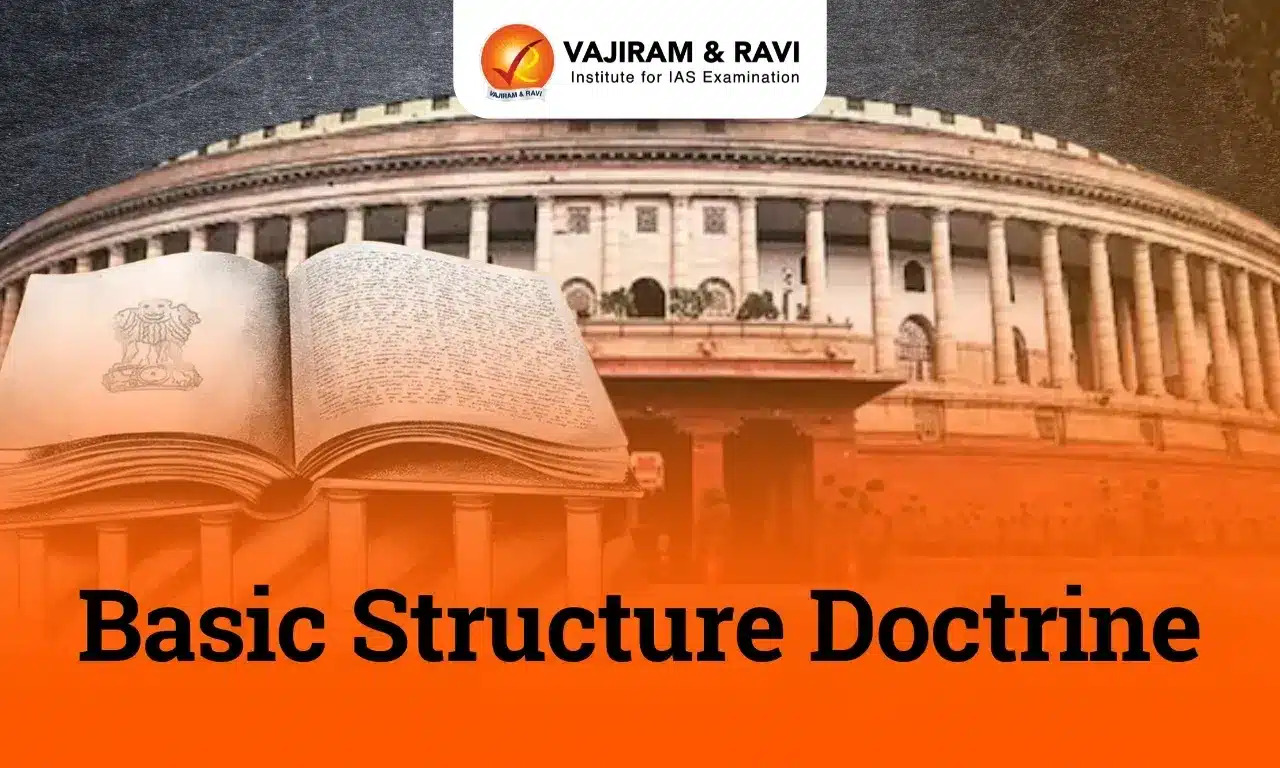What are Central Information Commission (CIC) and State Information Commissions (SIC)?
CIC is a statutory body constituted under section 12 of the Right to Information Act, 2005.
Similar to CIC, SIC is also a statutory body constituted under section 15 of the Right to Information Act, 2005.
The main objectives of CIC and SIC are:
- To exercise the powers conferred on them under the RTI Act, 2005.
- To receive and inquire into complaints from any citizen (Section 18 of the RTI Act, 2005).
- To receive and decide upon the second appeal from any citizen (Section 19 of the RTI Act, 2005).
- To perform the duty of ” Monitoring and Reporting ” (Section 25 of the RTI Act, 2005).
What are the salient features of CIC and SIC?
| Features | CIC | SIC |
| Composition |
|
|
| Appointment |
|
|
| Eligibility |
|
|
| Tenure |
|
|
| Reappointment |
|
|
| Removal |
|
|
| Salary and Allowances |
|
|
| Jurisdiction |
|
|
What are the powers and functions of CIC and SIC?
Some of the important functions of the CIC and SIC under the RTI Act, 2005 are:
- Section 18: It is a duty of the CIC and the SIC to inquire the complaints received from any person regarding information requested under RTI Act 2005
- Section 19: Adjudication in the second appeal for giving information.
- Section 20: Imposition of penalties by CIC and SIC if it is of opinion that the Public Information Officer, either at the central or state level, has not performed his duty and, without reasonable cause, rejects or refuses to entertain the application made by the complainant.
- Access to all public records: During the inquiry, CIC and SIC can ask for any records under the control of a public authority.
- Suo-moto Power: It can order an inquiry into any matter with reasonable grounds (suo-moto power). While inquiring, CIC and SIC have the powers of a civil court in respect of summoning, requiring documents, etc.
- Secure Compliance: CIC and SIC have the power to secure compliance with its decisions from the public authority.
- Annual Report: CIC submits an annual report to the Central Government. The central government places this report before the Parliament.
- The SIC submits an annual report to the State Government. The State Government places this report before the State Legislature.
What are the changes to CIC and SIC under the RTI Amendments Act 2019?
Changes to CIC and SIC through the RTI Amendment Act 2019 are
- Term: The term of Chief Information Commissioner and Information Commissioner shall be prescribed by the Central Government.
- The term of State Chief Information Commissioner and Information Commissioner shall also be prescribed by the Central Government.
- Salary, Allowances, and Services Conditions: These shall now be prescribed by the Central Government.
- Salary, Allowances, and Services Conditions of the State Chief Information Commissioner and Information Commissioner shall also be prescribed by the Central Government.
What are the challenges associated with CIC and SIC?
Some of the challenges associated with CIC and SIC are
- Lack of transparency: The criteria of selection and way of working of CIC and SIC are not adequately transparent.
- Example: Recently, the Supreme Court has commented on the phenomenon of primarily former bureaucrats being appointed as commissioners, observing that ‘only one category of persons are always found to be more competent and more suitable than persons belonging to other categories’.
- Poor Record Management Practices: Ineffective record management systems and procedures to collect information from field offices lead to delays in processing RTI applications.
- Non-filling vacancies: Vacancies in CIC are not filled in a timely manner leading to a backlog of cases.
- Example: In the CIC, three posts of commissioners remain vacant even though the backlog of appeals/complaints currently stands at nearly 26,800 cases. (‘Report Card’ for 2021-22 by Satark Nagrik Sangathan)
- Lack of capacity building: A person appointed to the post of CPIO in a public authority often lacks the required knowledge of the act to deal with the RTI application. This creates a delay in processing the delivery of the answer to the application.
- Delay in disposal of appeals and complaints: The efficiency of the RTI act suffers when it comes to the disposal of a Second Appeal, as RTI Act provides a time limit within which First Appeal needs to be disposed off. However, the act doesn’t provide any limit within which the Second Appeal to CIC must be heard and disposed of.
- Example: As on June 30, 2021, 2.56 lakh appeals were pending with 26 information commissions in the country.
- Poor quality of the information provided: CPIOs provide poor quality information to the applicant and complainant which the information seeker is not satisfied.
- Low Public Awareness: People are not much aware of RTI, especially in the lower strata of society.
Last updated on April, 2025
→ UPSC Notification 2025 was released on 22nd January 2025.
→ The UPSC Vacancy 2025 were released 1129, out of which 979 were for UPSC CSE and remaining 150 are for UPSC IFoS.
→ UPSC Admit Card 2025 is expected to release in first week of May for CSE Prelims Exam 2025.
→ The UPSC Prelims 2025 is scheduled to be conducted on 25th May 2025 and UPSC Mains 2025 will be conducted on 22nd August 2025.
→ Apply once through it and aspirants can apply for various government exams conducted by UPSC.
→ The UPSC Selection Process is of 3 stages-Prelims, Mains and Interview.
→ UPSC Result 2024 is released with latest UPSC Marksheet 2024. Check Now!
→ UPSC Toppers List 2024 is released now. Shakti Dubey is UPSC AIR 1 2024 Topper.
→ Also check Best IAS Coaching in Delhi
Central Information Commission and State Information Commission FAQs
Q1. Which public authorities are exempted from providing information under the RTI Act?+
Q2. What type of information may be obtained under the RTI Act?+
Tags: central information commission and state information commission quest















